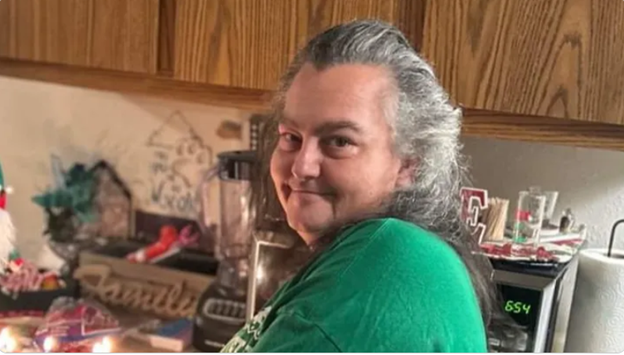Milwaukee council backs ambulance pacts after reassurances of changes following bus stop death

The Milwaukee Common Council on Tuesday backed extensions of the city's existing agreements with private ambulance services after reassurances that policies are changing following a woman's death last month when a private ambulance crew did not leave their vehicle to search for her in frigid temperatures.
Of key concern to council members was that ambulance crews get out of their vehicles to search for people in need of medical attention.
After the council held up the extensions at its Feb. 6 meeting, Milwaukee Fire Chief Aaron Lipski told a council committee that emergency medical officials had implemented a "stop-gap" measure while they worked to update standard operating guidelines to prevent deaths similar to that of Jolene Waldref at a busy intersection in subzero temperatures.
Lipski then sent council members an updated standard operating guideline regarding "reasonable searches" by emergency medical services personnel. In his memo, he offered reassurance that officials were not done with their policy review.
One ambulance official told the committee the contract delay had caused a “cashflow issue” for those companies.
The Fire Department and Curtis Ambulance faced backlash over Waldref's Jan. 15 death. A Curtis Ambulance crew twice drove through the intersection of North 76th and West Congress streets but did not leave their ambulance to look for her. The crew left after not seeing her on the ground, where she was later noticed by a passing driver.
The Milwaukee County Medical Examiner’s Office is investigating her death as a probable case of hypothermia. A final cause is pending results of a toxicology test.
In addition to delaying the contract extensions at its last meeting, the council also backed a proposal urging that the fire chief and all certified ambulance service providers adopt or change their procedures to require rescue crews to get out of their vehicles to search for people requesting help when weather, environmental conditions or "obstructions" make it harder to see in the location the responders were dispatched to.
'Reasonable search for patients outdoors' added to Milwaukee EMS guidelines
After the Feb. 15 committee meeting, Lipski provided the council with a standard operating guideline that now includes a section on "reasonable search for patients outdoors."
"Importantly, this is just the first portion (in effect or near-term) of the review/change process that we have already begun," Lipski wrote. "As also discussed at yesterday's meeting, we will continue to evaluate and assess the need for other system changes (mid-range and long-range) that will help prevent a recurrence."
The document will be attached to existing and future ambulance service agreements, giving it the force of contract, he wrote. The document went into effect on Thursday, though he noted its core tenets had already been enacted through interim policies and guidelines.
The new section requires that after determining the scene is safe, first responders will:
"Exercise due diligence" in searching for a patient.
Use 911 dispatch to try to re-contact the patient or person who reported the emergency.
As appropriate, interact with bystanders who may know the patient's location.
Use "an audible and visual device" like lights and sirens to announce their presence and arrival at the location where they were dispatched.
When multiple agencies and emergency vehicles are dispatched, an incident commander will coordinate the effort that might include searching in the direction a patient traveled.
Additional efforts to find a patient will be needed during "extreme weather conditions that reduce survivability," the document states.
Responders are also required to leave their vehicles to search for patients "when weather, other environmental conditions, or obstructions, create impaired or reduced visibility at or around the location or landmark to which responders are dispatched, or predicated upon the responders' ability to visually, and with certainty, clear a reasonable area of any victims who may have fallen down."
They're then required to document the scene conditions, methods and results of search efforts.
Milwaukee alderman who pushed for ambulance search changes says discussions ongoing
Milwaukee Ald. Lamont Westmoreland, who pushed for policy changes after Waldref's death in his district, said after the vote Tuesday that the Fire Department and the two private ambulance services made the changes "almost immediately."
"All three parties were receptive to do it, and we worked together to make sure the language was sufficient and fair," he said, adding that it was also important that the policy change not delay responses for other 911 callers.
Still, he called the changes "a start" and said he was looking for other ways to strengthen the public safety system.
That includes the city's 911 dispatch system, where he said "somebody dropped the ball in relation to Curtis not having the information that the caller could not breathe," which would have prompted a high-level response.
His comments echoed a previous assertion by James Baker, the president of Curtis Ambulance, that city dispatchers did not tell his ambulance crew that Waldref couldn’t breathe, leaving them thinking the call was not an emergency and causing them to not use their lights and sirens.
Westmoreland expected ideas for additional changes could be coming in the next few weeks or months, though he reiterated that the changes already put in place were the priority.
Journal Sentinel reporter Elliot Hughes contributed to this story.
Alison Dirr can be reached at adirr@jrn.com.
This article originally appeared on Milwaukee Journal Sentinel: Milwaukee council backs ambulance agreements after reassurances
